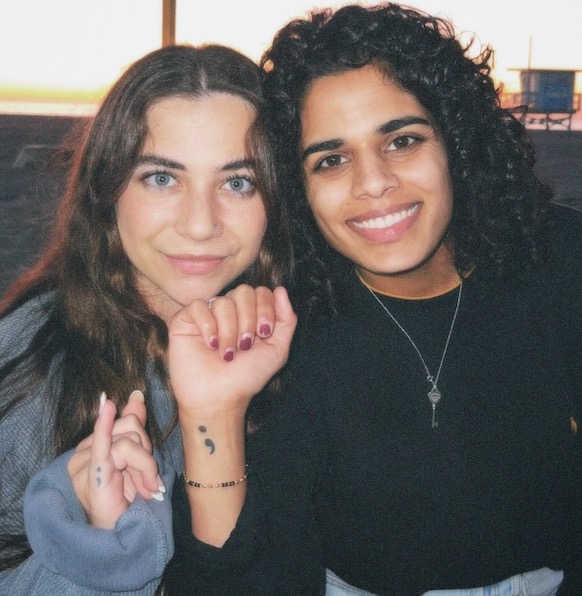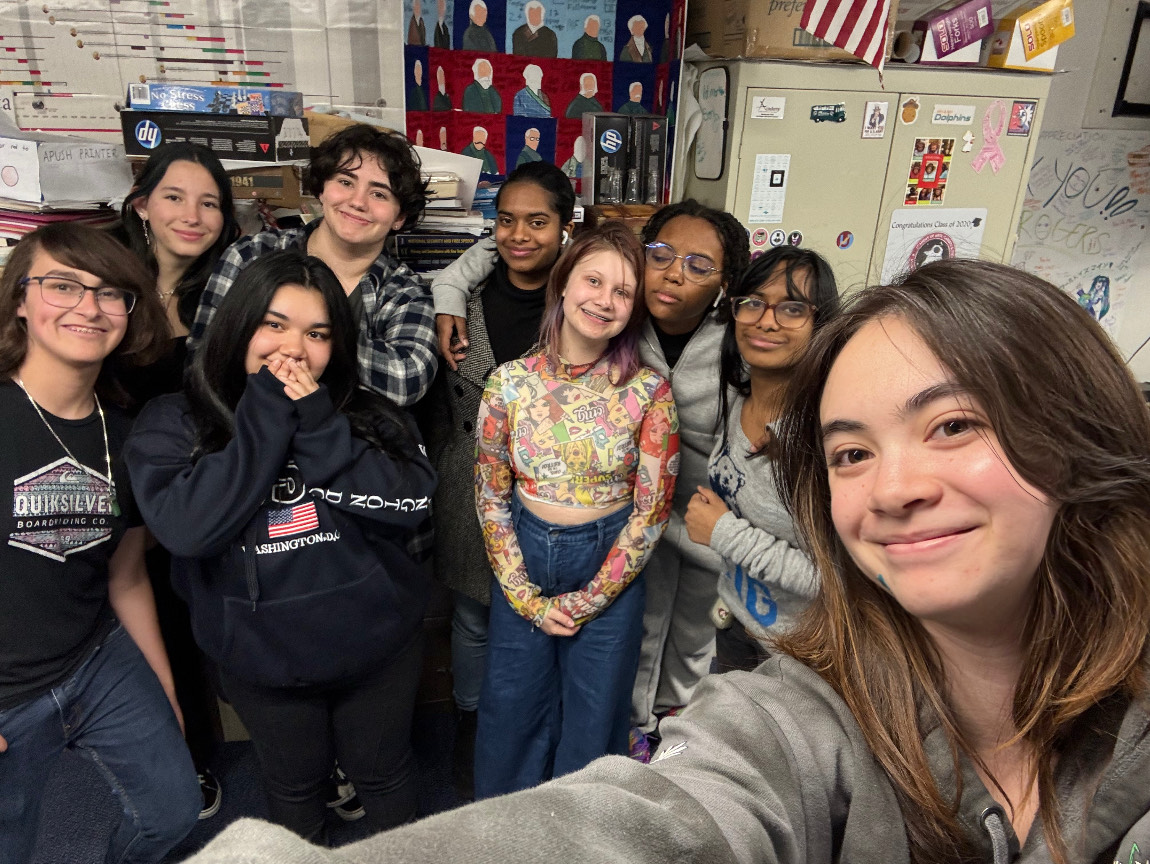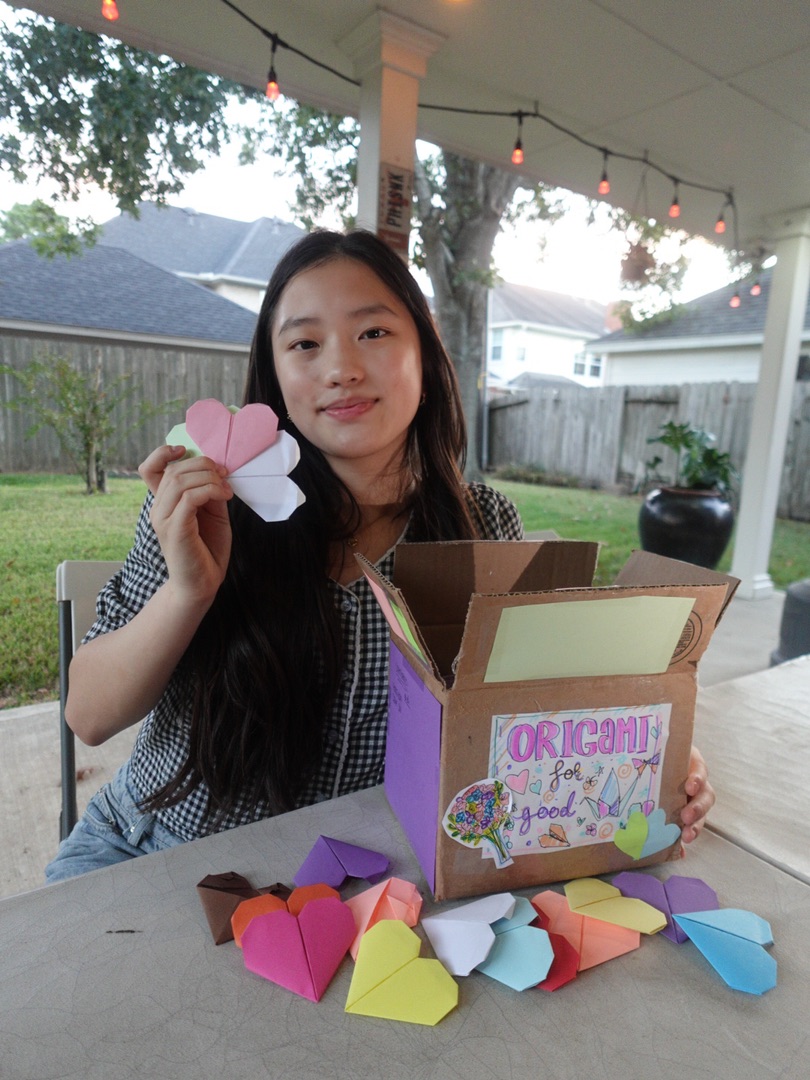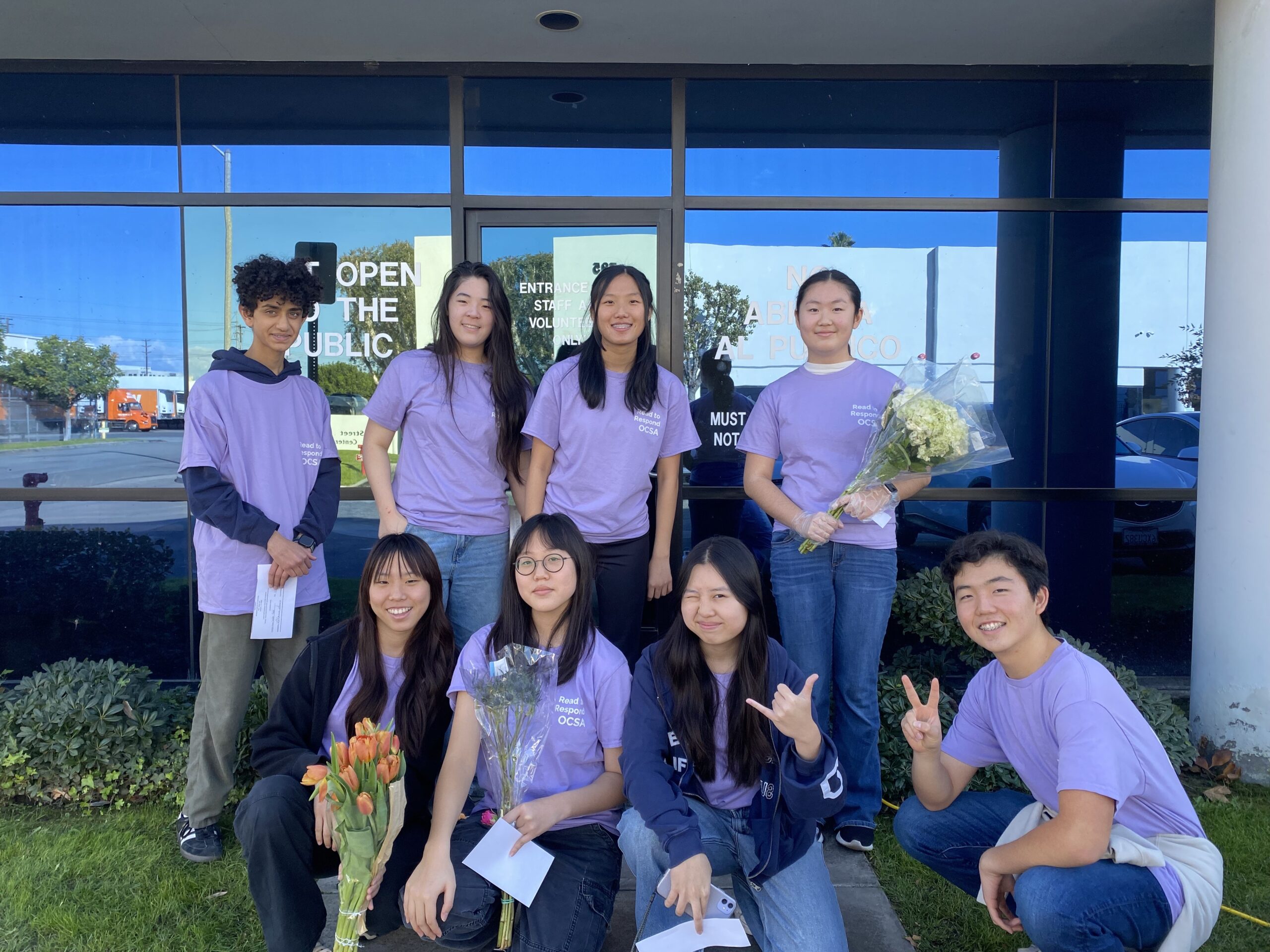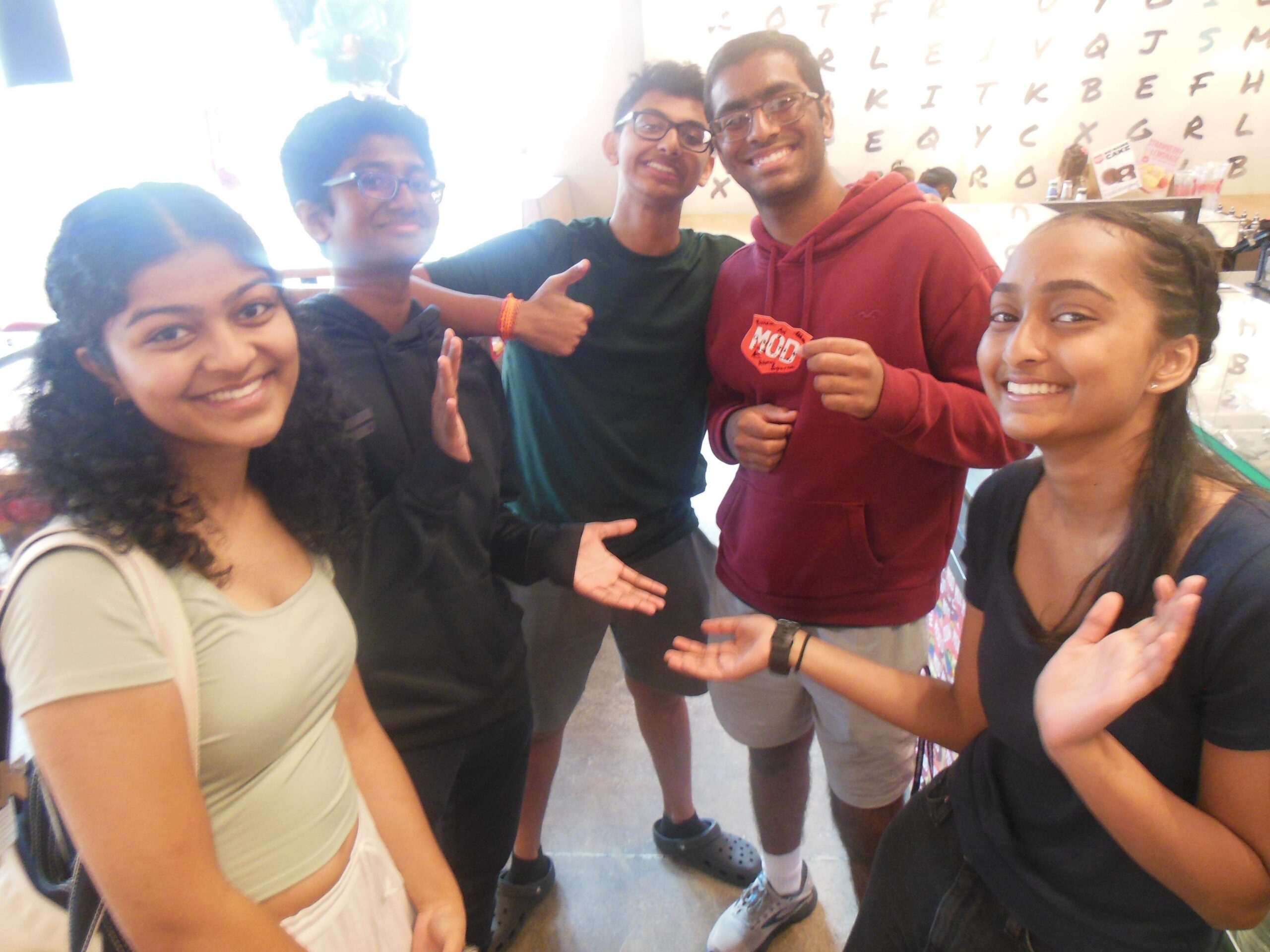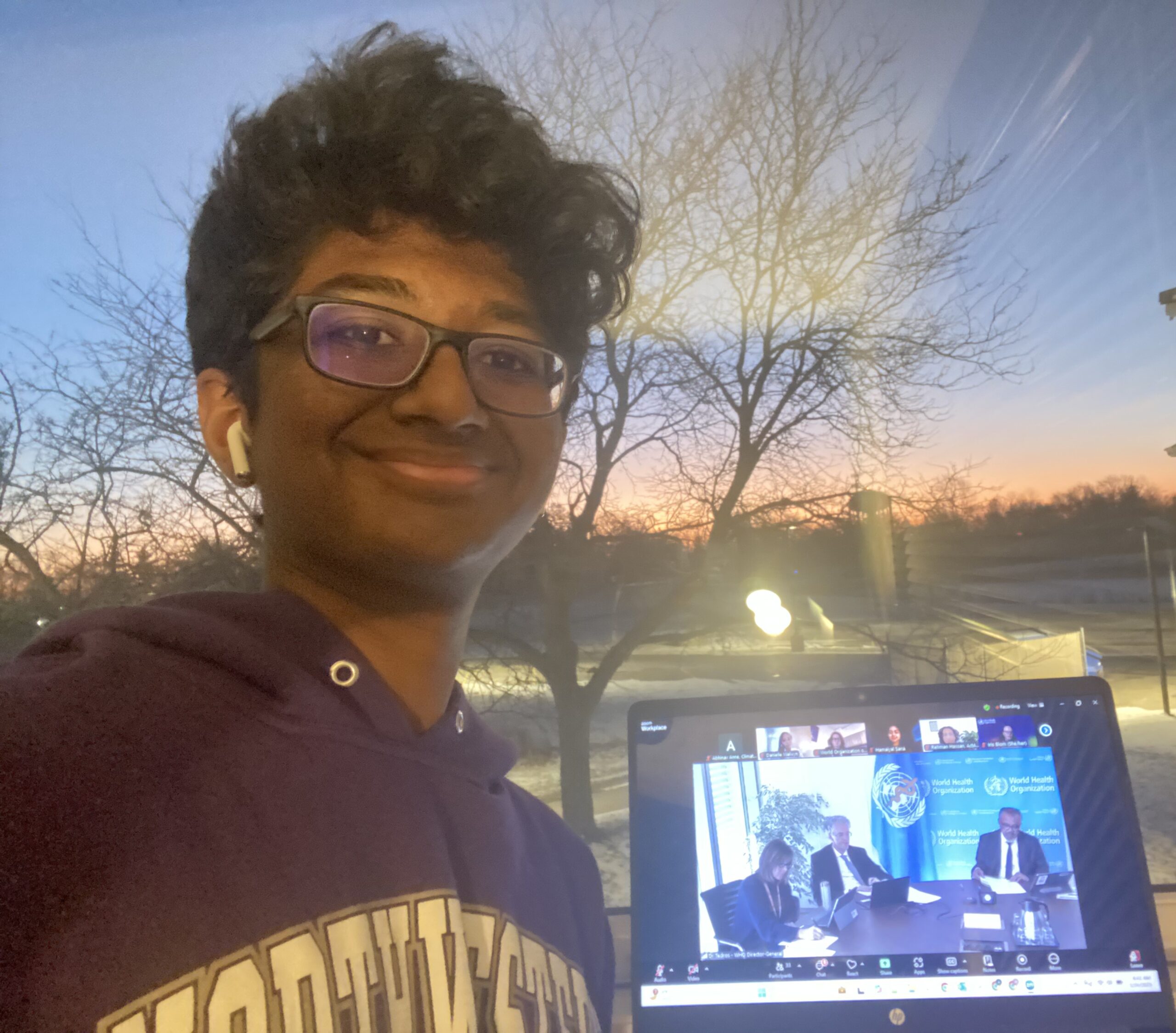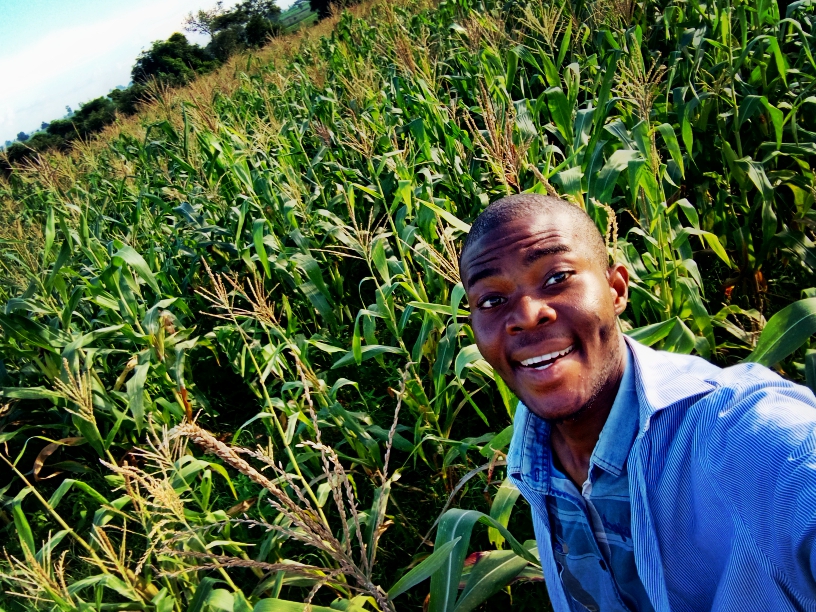Meet Adia and Meera: Two of BTWF’s Advisory Board members who are creating a kinder and braver world through their mental health advocacy! Below the two share their mental health journey, how they take care of their mental health, and how you can help eradicate the stigma:
1. Tell us a little bit about yourself.
Adia: My name is Adia (she/her), and I am a mental health and suicide prevention advocate from Los Angeles, CA. As a public policy advocate with the American Foundation for Suicide Prevention, crisis counselor for the 988 Suicide and Crisis Lifeline, and advisory board member for Born This Way Foundation, I am passionate about unifying the mental health space from a diverse set of approaches. I am an Iranian-American woman whose cultural roots inform my collectivistic approach for mental health efforts. I deeply believe that mental health is health and that suicide prevention must be prioritized in all sectors of society.
Meera: My name is Meera (she/her), and I’m a mental health activist from Los Angeles, CA. Mental health is something deeply personal to me, and I have dedicated my life to sharing my story with hopes to create systemic change. My identity as an Asian-Indian woman has been at the forefront of my work as an activist. I believe that it is important for conversations around mental health to be intersectional because culture plays an integral role in a person’s ability to receive support and services. I am passionate about mental health education, suicide prevention, and policy implementation. I hope that through sharing my story I can foster interpersonal connection and encourage others to get the help they need and deserve.
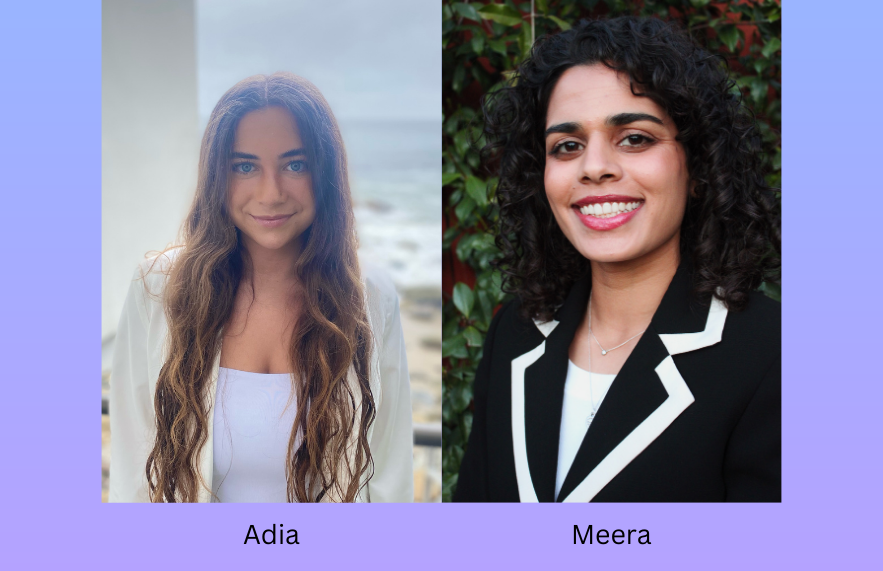
2. At what point in your life did you realize your mental health was an important aspect of your wellbeing and something you needed to take care of?
Adia: Teen Line, a youth crisis hotline by youth and for youth, was where I spent the majority of my high school experience in the mental health space. When I was about 14, I began as a peer listener at Teen Line, and it was through my experience receiving psychoeducational training and learning from people with lived experience where I truly understood how mental health was central to my wellbeing. Without knowing how to address mental health or knowing the adequate resources to turn to, I would have never begun therapy. This reality reinforces the concept of eradicating stigma, educating on mental health, and engaging with those who share their mental health stories. These pertinent aspects of the mental health landscape prompt us toward advocating for ourselves, which can then extend into advocacy for others.
Meera: Looking retrospectively, I knew that I was struggling with my mental health when I was around 10 or 11 years old. At the time, I did not have the right words to articulate how I was feeling. However, as I got older and started experiencing more intense mental health struggles, I realized that the way to getting better is to become a better advocate for myself and ask for help. Asking for help is probably one of the hardest and bravest things I have ever done. I’m so glad that I listened to my gut and sought out support. Nobody should ever struggle in silence.
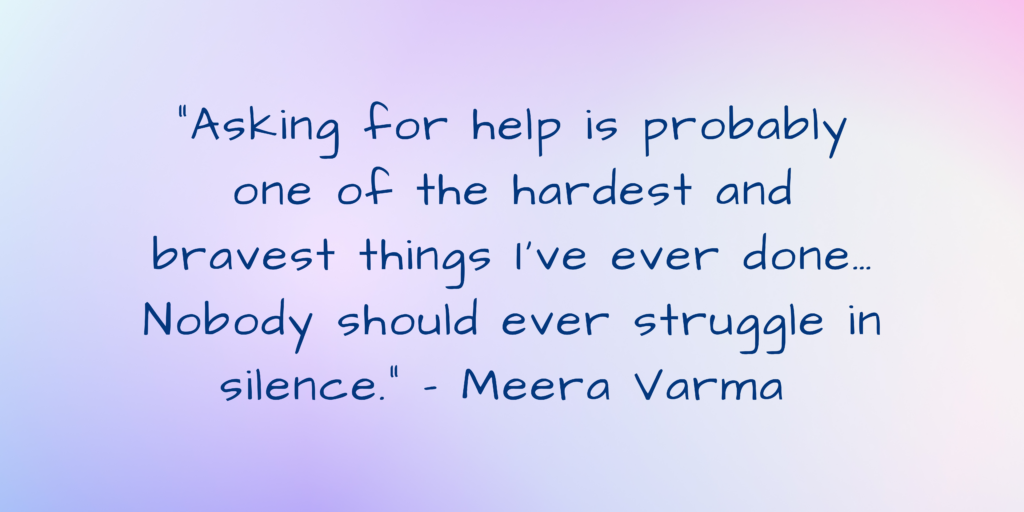
3. What fuels your passion for mental health activism?
Adia: I constantly introspect upon my “why” for mental health activism. Mental health is a uniquely broad term, and it encompasses more than mental health issues. It is especially imperative that in the space of mental health, we shine a light on mental illness and its real impacts on real humans. The mental health space is the only space I have found that holds a balance by leaning into vulnerability and embracing validation for the human experience while finding hope in the dark places. My “why” is that mental health matters because people matter.
Meera: What fuels my passion for mental health activism is the ability to help a person find their inner strength and encourage them to seek support. With our nation’s mental health crisis becoming exponentially severe due to the aftermath of COVID-19, normalizing conversations around mental health is only becoming more crucial. Knowing that as an activist, I have the power to change lives for the better is what motivates me to continue doing what I do. The greatest honor in my life is being able to support others when they need it most.
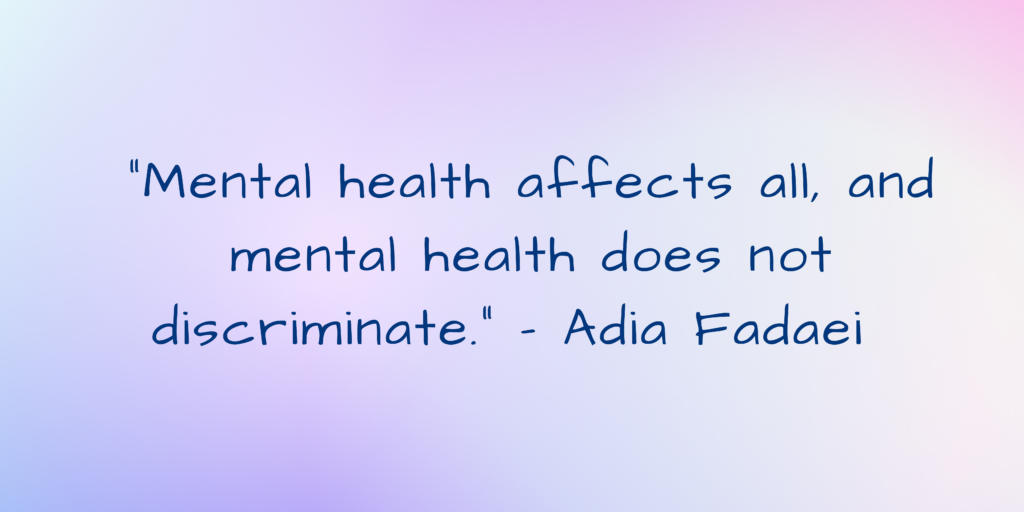
4. How can people help eradicate the stigma, especially cultural stigma around mental health?
Adia: As an Iranian-American woman, I acknowledge the discrepancies in current mental health interventions and advocacy efforts as they relate to cultural competency. Mental health affects all, and mental health does not discriminate, but this does not mean that distinct communities do not need distinct approaches. A tangible way individuals and systems can counteract the cultural stigma around mental health is by understanding the communities they are interacting with. For instance, if someone is hoping to destigmatize mental health in the Middle Eastern/North African community, they must first understand the collectivistic nature of our people and how that relates to cultural stigma. Further, mental health supports, such as mental health professionals and other resources, must effortfully emphasize cultural competency across all points of diversity and intersection.
Meera: Making mental health an intersectional conversation is extremely important. The first step to eradicating cultural stigma around mental health is through education. We all have a mental health that deserves to be taken care of. Personally speaking, my struggles with mental health cast a dark shadow over many of my experiences as a teenager and were compounded by the cultural shame I faced when seeking treatment as an Asian-Indian woman. Part of my activism is to normalize conversations among my cultural community through cultivating safe and open conversations.
5. Our generation is said to be one filled with trauma, how do you take care of your own mental health when things get particularly hard?
Adia: Taking care of my mental health is not simple, and it requires intentionality, but it cannot be neglected. I take care of my mental health by continuously checking in with myself, communicating honestly with those I trust, giving myself grace, reading, journaling, and going to therapy.
Meera: My favorite ways to take care of my mental health are exercising, drawing, and teaching myself songs on the piano.




